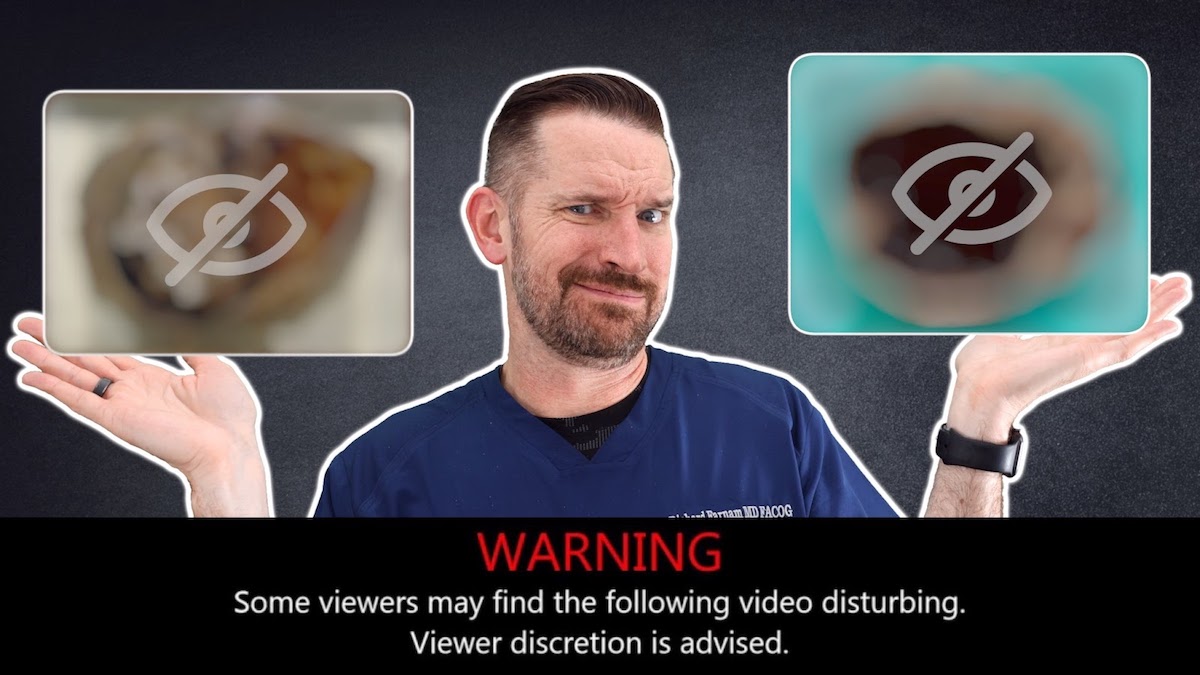Welcome back to the Dr. Rich channel. Today’s topic is robotic surgery, and we’re going to answer the three most commonly asked questions.
Don’t have time to read this blog post? Watch it here instead!
What is robotic surgery? Why is it the best? And why are people scared of surgical robot? And make sure you stick around to the end when we’ll explain how to avoid them. Pre-surgical jitters.
Hi, my name is Dr. Rich and my passion is to provide every woman with practical knowledge about the world of women’s health. Today’s topic, robotic surgery. Let’s get into this. So the first question is what is robotic surgery? So robotic surgery is a way of doing a surgical procedure on the abdomen or pelvis through small incisions.
Now, this is been around in some form for a long time, uh, known as laparoscopic surgery for the last 35 years. But over the last 20 years, the introduction of a surgical robot in the operating room allows the camera and the instrument arms to be held by a surgical robot during the operation. What this allows for is more precise, surgical dissection, and gives the surgeon three-dimensional vision, which they didn’t have when they did surgeries. Laparoscopically enhanced externality and enhanced visualization are two reasons why robotic surgery is better than either laparoscopic or open surgery.
Another reason robotic surgery is better specifically compared to open surgery is it’s a way faster recovery. So someone could have open gallbladder surgery or open hysterectomy, and their recovery would be about eight weeks long. So with robotic surgery, that’s down to one to two weeks, which is essentially an 80% reduction in your total recovery time.
Our research group has published data that has shown that in our hands, complication rates are actually lower for hysterectomy. When we use the surgical robot compared to open laparoscopic and vaginal. Additionally, other studies have shown that patients go home sooner, oftentimes, and in our case, almost exclusively the very same day for the surgery.
Robotics represents the latest advancements in technology and electrosurgery and visual optics. And it really gets the, uh, surgeon all of the best that technology has to offer and allows the patient to have potentially the best outcome. There is also a tremendous amount of active research going on in and around surgical robotics. And the technology is continually improving.
In fact, I’m a primary investigator on a surgical die that is going to be used to prevent incidental injury to a ureter or a tubular structure in the pelvis during hysterectomy and other gynecologic surgeries, and other general surgeries.
Granted the technology is truly amazing. The robot itself is about seven feet tall and could be intimidating for some patients, but rest assured, this is not the Terminator. This is a device that the surgeon is in complete control of at all times. And in fact, enhances and improves the surgeons, uh, movements as he’s doing dissection and as promised, how do we avoid the pre-surgery jitters?
So it comes down to several things. Knowledge is power. Do your research meditation and avoid unnecessary stimulation the day before your surgery, as far as information, make sure you have written out a list of questions for your doctor on your pre-op surgery visit. Uh, we also have created a video that answers all of your pre-surgery questions in this link here, as far as your comfort level with your surgeon, make sure you do your research and you find a doctor that has a high level of expertise in the type of surgery that you’re having done.
As far as anxiety, a powerful antidote is a mindfulness, and you can learn how to meditate and be more mindful in this video here. And lastly, just stay off the internet the night before your surgery gets a good night’s rest, avoid too much stimulation.
If you are going to take some type of anxiety medicine, make sure you let your doctor and your anesthesiologist know. So robotic surgery is the future. And many surgeons gravitate towards this technology because of all of the benefits, but there are many other ways of doing surgery. And if your surgeon is an expert in vaginal surgery or laparoscopic surgery, you would want to ask them about their expertise and that might be the best option for you in their hands.
Thanks for sticking around and make sure you subscribe to get access to all of our great content.




